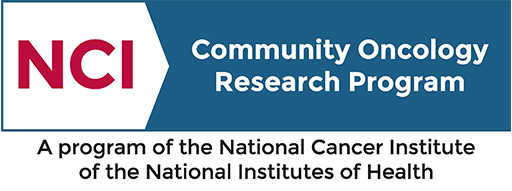Cancer care
At Kaiser Permanente, you have an experienced team of cancer specialists working together to care for all that is you. And our members are 20% less likely to die early of cancer compared with nonmembers in their community.1

Our oncologists aim to detect cancer as early as possible. That includes in-person, phone, and email reminders about which screenings you may need. In fact, we lead the nation in cancer screening rates.2

Our dedicated oncology teams have access to the latest treatments and therapies, and our members have better survival rates for several common cancers.3 So whether your cancer is rare, common, or complex, you’ll get the most advanced care plan.

Your care team will continue monitoring your health during recovery and beyond. Plus, they’ll help you get the physical and mental health support you need to stay healthy.
Our dedicated care teams build personal, trusting relationships to support all that is you — physically, mentally, and emotionally. We’ll be there every step of the way, so you and your loved ones can focus on what matters to you.
With your total health in mind, our specialists regularly collaborate to share the latest cancer research, clinical trials, treatments, and best practices. And we’ve treated more cancer patients than most providers. This means you get the most advanced cancer treatments and experience available — for even the most complex cancer cases.


Food for health: easy and delicious recipes you can make at home
Check out healthy recipes and nutrition tips posted by Kaiser Permanente doctors, nurses, and dietitians.

Fay’s story: Courageously facing a family history of breast cancer
Kaiser Permanente’s hereditary cancer program provided Fay Gordon with genetic counseling and a prevention plan that caught her breast cancer early.

A healthy life after cancer: Surviving and thriving
Advanced screening, early detection, and new treatment options help more patients survive and thrive.
Kaiser Permanente is one of the largest enrollment sites for National Cancer Institute (NCI) clinical trials. We’re one of just 46 NCI community and minority community sites bringing NCI-approved clinical trials to patients where they live.
Learn more about our innovative cancer research and clinical trials.

Footnotes
1Data provided by the Institute for Health Metrics and Evaluation, 2022.
2Kaiser Permanente has superior screening rates compared to the national average for 3 of the most common types of cancer: breast, cervical, and colorectal. Based on 2023 HEDIS® scores, Kaiser Permanente 2023 HEDIS® Benchmarks provided by the National Committee for Quality Assurance (NCQA) Quality Compass® and represent all lines of business. Kaiser Permanente combined region scores were provided by the Kaiser Permanente Department of Care and Service Quality. The source for data contained in this publication is Quality Compass 2023 and is used with the permission of NCQA. Quality Compass 2023 includes certain CAHPS data. Any data display, analysis, interpretation, or conclusion based on these data is solely that of the authors, and NCQA specifically disclaims responsibility for any such display, analysis, interpretation, or conclusion. Quality Compass® and HEDIS® are registered trademarks of NCQA. CAHPS® is a registered trademark of the Agency for Healthcare Research and Quality.
3Erin E. Hahn, PhD, MPH, et al., “Incidence and Survival for Patients Diagnosed With Breast, Colorectal, and Lung Cancer in an Integrated System,” The Permanente Journal, September 19, 2023. Age-standardized, 5-year survival rates for Kaiser Permanente members diagnosed with breast, colorectal, lung, and cervical cancer, for cases diagnosed in 2013, compared with the Surveillance, Epidemiology, and End Results (SEER) national benchmark survival rates.
4Classes vary by location. Some members may have to pay a fee for certain classes.